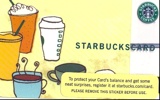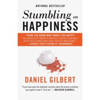Making Your Gift/Loyalty Card Program Work for You All Year Around
When we think of Gift/Loyalty Cards, we think about Christmas gifts. According to the 2006 Deloitte Touche Report on Gift Cards, Gift Cards the single most popular gift.
But it would be a mistake to focus on the major benefits of a Christmas Gift cards -getting the customer back in the store in January. A franchise system wants a program that will work year around. Harrah's provides an interesting example of what can be done with Gift/Loyalty Card program.
In 2003, Gary Loveman; CEO of Harrah's commented on Total Gold Program, in the Harvard Business Review:
"One tactic the company had already decided to use to enhance customer loyalty was called Total Gold, a player-card program that was modeled after the airline industry's frequent-flier programs. Launched in 1997, Total Gold was designed to provide regular customers with incentives to visit Harrah's properties throughout the country. Customers inserted their Total Gold cards into slot machines and earned credits as they played. They were rewarded with the standard fare that all casinos offer--free hotel rooms, dinners, show tickets, gift certificates. But there were three problems with the program. First, nothing differentiated this program from our competitors' efforts. Our customers simply took their free rooms and dinners and drifted across the street to do their gambling. Second, our customers earned different rewards at different properties; there was no uniformity in the program. Third, and most important, our customers were not given any incentives to consolidate their gaming with Harrah's."
So how do you think Loveman changed Harrah's program? What would you have done? How would have dealt with any one of the three problems?
Continue reading "Making Your Gift/Loyalty Card Program Work for You All Year Around" »


 You gotta
You gotta 